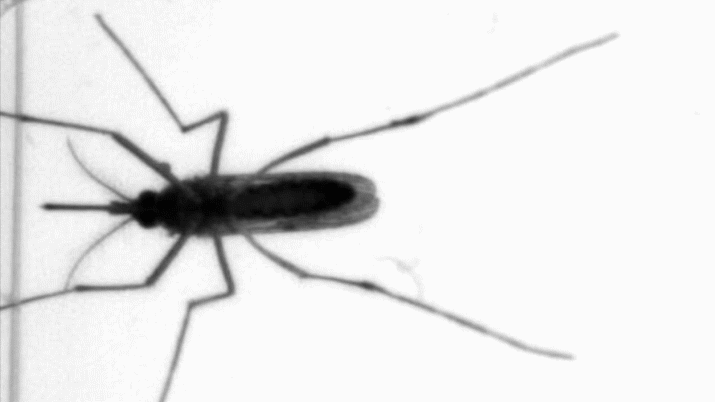Mosquitoes have a taste for human blood, because our blood is “salty and sweet,” according to newly published research.
The study, published in the scientific journal Neuron, notes female mosquitoes have two different feeding modes, including a nectar one that detects sugars and one that pierces the skin and feeds on blood, similar to a syringe.
Study co-author Leslie Vosshall and the other researchers were able to trick the mosquitoes to get into “blood-feeding mode” offering them four compounds: glucose, sodium chloride, sodium bicarbonate (which is found in blood and baking soda) and adenosine triphosphate, or ATP. The ATP has no taste, but Vosshall noted it may be “exciting” for mosquitoes.

Scientists used an imaging apparatus called a BiteOscope to observe mosquitoes’ preferences for different meals. New research reveals how the insects experience the taste of blood. (Credit: Prakash Lab)
HAIRY CATERPILLAR WITH ‘VENOMOUS SPINES’ FOUND IN VIRGINIA, PROMPTING WARNING
“ATP is this special mystery stuff that tastes like nothing to humans. But it’s got to be incredibly exciting and rewarding for the mosquito,” Vosshall said in a statement.
The researchers were able to slightly alter the insects and give them a fluorescent glow to see when a particular nerve cell was activated and see how the cells reacted and lit up to the different meals.
“There is nothing like this in the human experience,” Vosshall added.
The researchers hope that by understanding why mosquitoes feed on human blood, there could be a drug created that could stop the ravenous insects from feeding on us, Vosshall added, noting something similar to a dog’s flea and tick medication could be created.
“If mosquitoes weren’t able to detect the taste of blood, in theory they couldn’t transmit disease,” said Veronica Jové, an HHMI Gilliam Fellow at the Rockefeller University, and lead author of the study, in the statement.
MORE ASIAN GIANT ‘MURDER HORNETS’ FOUND IN WASHINGTON STATE, OFFICIALS SAY
The blood-sucking insects, which spread diseases such as malaria, dengue and yellow fever, are responsible for at least 500,000 deaths a year. Only female mosquitoes feed on blood, using it as sustenance for their eggs to develop.
“This is definitely a technical tour de force,” neuroscientist Chris Potter of the Johns Hopkins University School of Medicine, said in the statement, adding that it is one “we could use against the mosquito.”